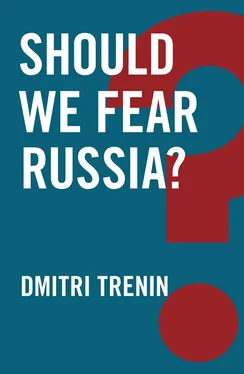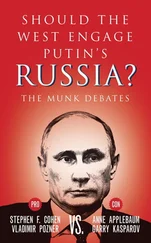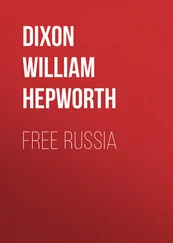The Russian–Chinese rapprochement and Beijing’s and Moscow’s reciprocal westward and eastward turns predate the Ukraine crisis, but both were given a boost by the breakdown of Russia’s relations with the West. True, there has been and will be no “geopolitical merger” as a result. An alliance between China and Russia looks unlikely, but the present bilateral relationship is much more than the “strategic partnership” it is formally dubbed. It is certainly more than a marriage of convenience. For lack of a better word, the state of relations can be described as an entente. This denotes a degree of mutual empathy and geopolitical convergence based on overlapping worldviews and a joint resentment of US global dominance.
Most Americans are relaxed about the prospects of China and Russia drawing closer together. Any alliance between Beijing and Moscow, their logic goes, would have China on top. Russia, however, will not enjoy being a junior partner to China and will seek to break away from its tight embrace. In such a scenario, only one credible option will remain open to Moscow: seek reconciliation with Washington and some form of association with the European Union. This would mean Russia’s geopolitical surrender.
This reasoning is not flawless. The situation in Eurasia can change to the disadvantage of the United States. For all their reported contempt for the Russians, the Chinese have been very considerate and careful when dealing with their northern neighbors. Since the normalization of their relations with Moscow in 1989, they have been able to achieve so much more with Russia than the West, while evoking practically no pushback from the Russians. The Chinese appreciate the value of appearances and do not humiliate the Russians publicly, whatever they might think of them in private. Beijing’s centralized control not only over policy but also over public discussion of policy protects the relationship from unnecessary provocations.
Each country is wary of coming too close to the other. China and Russia, however, can continue to consolidate and upgrade their relationship short of an alliance. In this case, more of Russia’s natural and military-technological resources would be made available to China. Strategic coordination between Moscow and Beijing would remain loose, but, in the larger scheme of things concerning the world order, Beijing and Moscow will be on the same side. The Greater Eurasia that they are constructing will not be run from a single center, but their continental entente will essentially be aimed at limiting US dominance on the edges of the continent and in the world at large.
Strategic stability and arms issues
Despite the Pentagon’s towering position in the global military field, the latter offers some advantages to Moscow. Russia remains a nuclear superpower, in an exclusive league with the United States. The nuclear deterrent is back in play in US–Russian relations, countering President Obama’s grand vision of a world less reliant on nuclear weapons. While nuclear is back, arms control is frozen and may even be on the way out. There is virtually no prospect in the foreseeable future of new US–Russian strategic arms reduction agreements. The advent of strategic non-nuclear systems and strategic defenses complicates the task of any future negotiators. The arrival of China as a major military power makes bilateral US–Russian arms control increasingly insufficient and obsolete, while any trilateral deals are technically exceedingly complex and, for the time being, politically impossible.
Outside of the nuclear field, Russia’s military, of course, is not the Pentagon’s peer. Yet, it is re-emerging as a capable force which can make a difference in a number of theaters, from the Middle East to Central Asia to the Arctic. With post-Cold War security arrangements in Europe now history, there are dangers of uncontrolled military activity along the new line of Russia–NATO confrontation in Eastern Europe. Incidents in the air and at sea, provocative war games scenarios, and troops and weapons deployments create a vast potential for miscalculation in an area which has been considered safe for twenty-five years.
Russia remains a top global exporter of arms and military technology, second only to the United States. Even in the times of current crisis, the defense industry is prioritized by the Kremlin: the requirements of confrontation are compelling, plus it is being viewed as a locomotive for Russia’s new industrialization. Russian arms deliveries to various countries, such as China, India or Iran, can and do affect local and regional balances. Russia is also well equipped in cyber warfare capabilities. These assets carry a major potential risk to the United States. At the other end of the spectrum, Russia has shown a capacity for waging “hybrid warfare,” operating just under the threshold of conventional military operations.
Geo-economics
Russia has been the largest economy put under sanctions in recent times. In geo-economic terms, the US-orchestrated sanctions against Russia have exacerbated the process of global economic fragmentation. Russia has responded to the Western restrictions by imposing a food imports ban on the sanctioning countries, primarily members of the European Union. Traditionally strong economic relations between Russia and Ukraine have been broken. Following the spat with Ankara, Moscow initiated sanctions of its own against Turkey, until recently a major economic partner. Other countries, such as China, watching the Russian–Western economic wars are making conclusions for themselves about the ability of economic ties to provide stability to political relations. The global economic system that had been experiencing increasing strain for some time thus received a powerful blow.
Challenges to the European Union
The European Union was directly challenged by Moscow’s response to its support for Ukraine’s pro-Western orientation. The EU failed to appreciate the geopolitical, economic and even psychological importance of Ukraine to the Russian leadership and people and pursued its Eastern Partnership project without much thinking about its wider implications. At the crucial moment, as Ukraine’s fate was being decided, European diplomacy failed to manage a soft landing for the Yanukovych regime and the ensuing power transfer, and thus the EU was exposed as an irrelevant and – in the Kremlin’s view – an untrustworthy actor.
The Ukraine crisis that soon followed brought home to the European leaders, starting with Angela Merkel, both the harsh reality of war on the EU’s very doorstep and the possibility of an even wider conflagration affecting members of the Union itself. This caught the EU off guard: it had not been equipped to deal with geopolitical crises. This was the responsibility of NATO – i.e., the US. On the other hand, bailing out Ukraine and helping it reform itself is a mighty challenge – one which falls mainly on the European Union.
Russia meanwhile has become even more divisive for the unity of the EU and for transatlantic relations. In the wake of the downing of the Malaysian airliner over Donbass in 2014, German and other European business circles, which had traditionally seen Russia as a major opportunity, acquiesced in their governments putting politics – or, some would say, principles – before profits. At the time, this was a remarkable achievement by Europe’s politicians, given the volume of trade between the EU and Russia – about €1 billion a day in 2013. Since then, the volume of trade has halved.
However, this common stance on Russia is difficult to sustain over the long term. Different European countries have very different experiences with Russia, and very different expectations. Whereas the Baltic States and Poland are deeply worried about their former hegemon, and Sweden and Britain remain traditionally skeptical of the historical rival, France, Germany, Italy and Austria do not feel threatened and want to continue trading with Russia without constraints, while Greece and Cyprus are basically friendly. There is potential for individual countries opting out of the sanctions regime which, given the EU requirement of unanimity of decision-making on the issue, would terminate it.
Читать дальше












